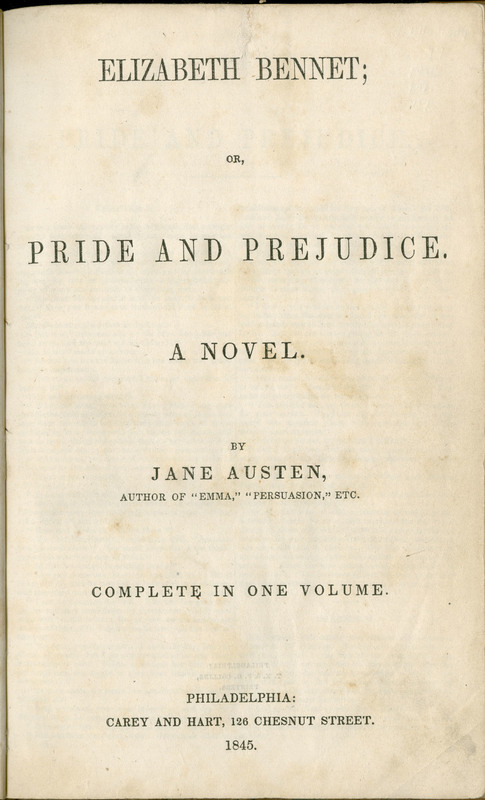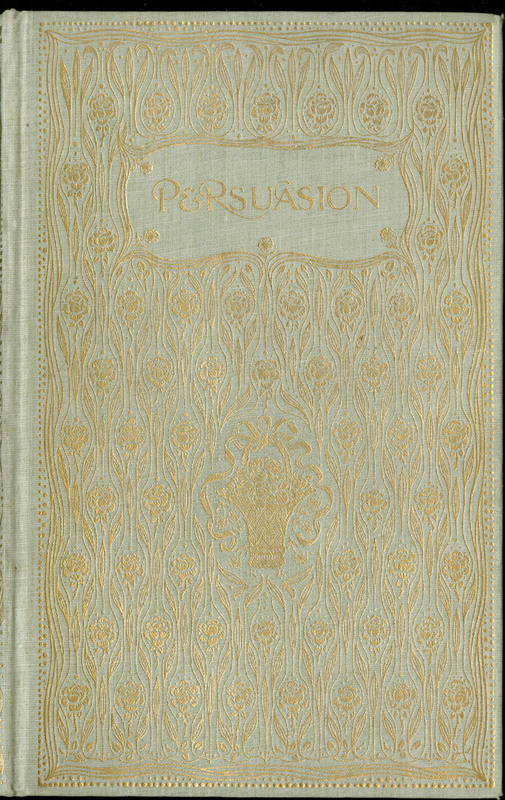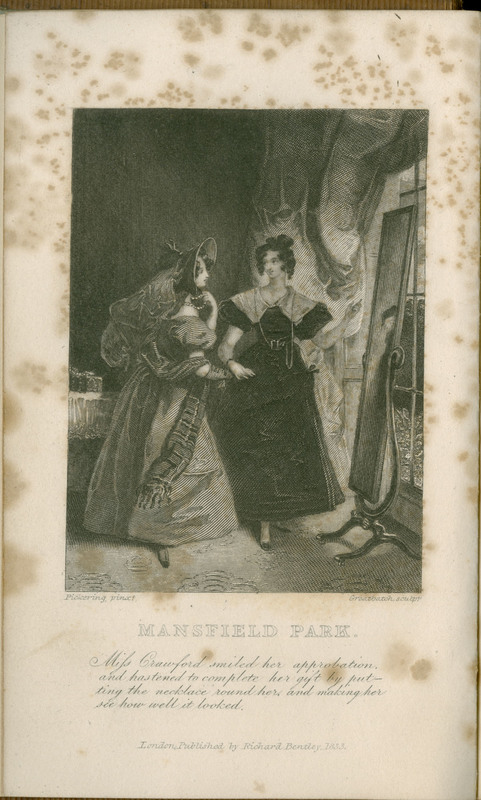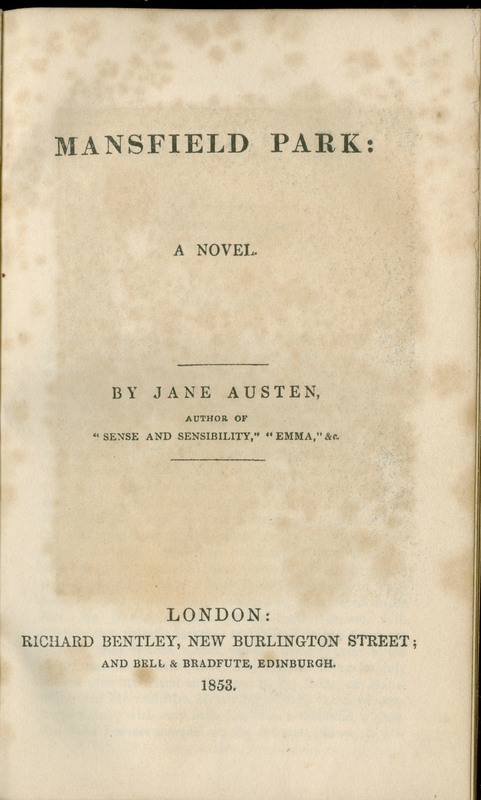Mansfield Park
Mansfield Park was originally published in 1814 as a single novel. Sixteen years after Austen's death in 1817, her brother and sister, Cassandra and Henry Austen, negotiated the reissue of her novels with publisher Richard Bentley. He purchased the copyright for Austen’s six novels and reprinted them as a set in five volumes as a part of his Standard Novels series in 1833. Each of these volumes had both a frontispiece and vignette title page that were created from engravings via steel plates. This 1853 edition, however, only has the original frontispiece, excluding the engraving on the title page.
Starting in the 1830s, Mansfield Park was regarded as one of Austen’s best novels, reaching the height of its popularity in the mid-nineteenth century. Its themes of religion and social morality connected with Victorian readership. That said, Mansfield Park’s heroine, Fanny Price, has tended to be a divisive character. At publication, Austen’s mother found Fanny to be “insipid,” while her brother, Frank, described Fanny as “delightful.” Many Victorians celebrated Fanny’s “delicacy, modesty, fortitude, and self-sacrifice.” This view echoed Coventry Patmore’s “The Angel in the House,” an 1854 poem that celebrated docile and complacent females as the Victorian ideal. Still, readership remained divided and others found Fanny to be “less of a favorite.” Mid-twentieth century scholars remained critical of Fanny, particularly within the field of feminist scholarship. However, Austen’s dramatic rise in popularity beginning in the 1980s has brought renewed interest to Mansfield Park and its heroine, Fanny Price.
(Cari Griffin, Madeleine Schneider)

Pride and Prejudice

Persuasion


